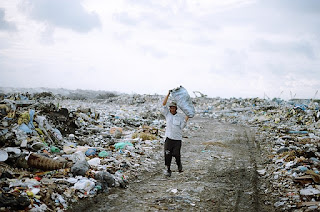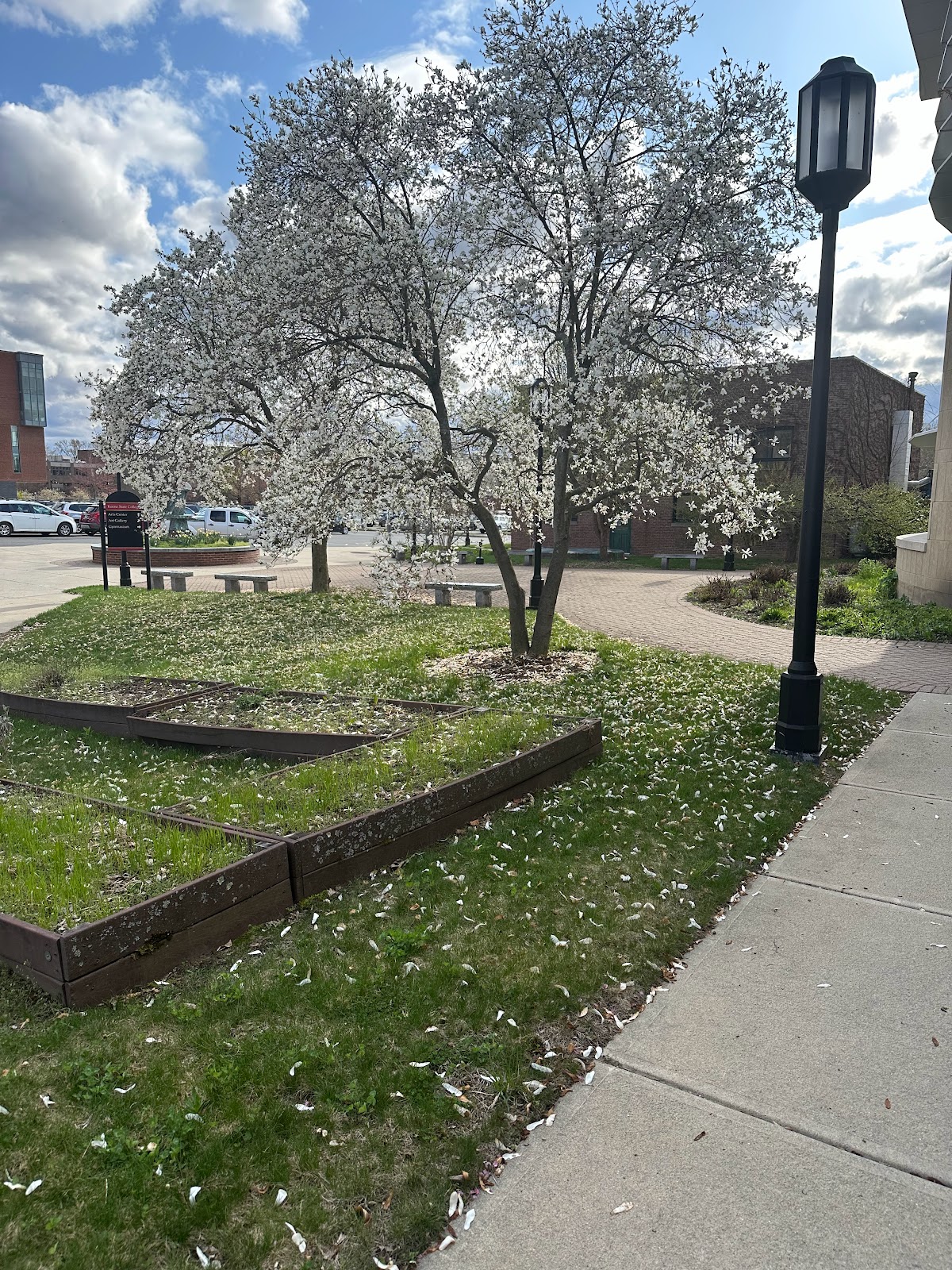Effects of Plastic Recycling
Harmful Effects of Plastic Recycling
by: Evan Marchand
original article: Where does your plastic go?
 |
| photo by: Fquasie(wiki commons) |
The pollution issue around the world has reached an all-time high, while economically stable countries, are shipping thousands of tons of plastic waste to less financially viable nations in order to get rid of our hard to recycle plastics. In the picture above we can see this woman from Ghana picking plastic waste that has been shipped from other countries and deemed the recycling as "unusable". The United States has been one of the biggest contributors to this issue, shipping plastics to different nations including, China, Malaysia, Taiwan and many more, to name a few. Just recently in 2018, China passed bills prohibiting the US from transporting any more "recyclable" plastics to China, as a result of this, the US resorted to sending there plastic to less economically fortunate countries. These countries become overwhelmed with the sheer amount of plastic recycling, and are force to sort it, burn it, or used in landfills. These actions can cause immense health issues in nearby communities, contaminating the air, the water they drink from, and even the food they eat. While many of these countries are passing bills to prevent any further spread of plastic waste, these environments have become permanently damaged, left behind with heaps of trash and people suffering with disease. Much of this damage is caused by the misinformation spread by government run programs inciting citizens to recycle to "save the planet". The reality being, nobody truly knows where their trash goes, you may take it down to the dump, or a garbage truck comes and picks it up but from there we become blind to the process of recycling. As such many plastics that are recycled are dirty, contaminated with food or just too difficult to re-use. In conclusion the citizens of these nations should be better educated on which plastics are recyclable and which ones aren't.
 |
| Photo of Thilafushi Island by:Dying Regime Plastics in these nations are very rarely recycled, most of the time plastics are used in landfills or burned. Burning the plastics is not only bad for the environment but bad for the people nearby as well, similarly, these landfills are buried just below the surface and with the rainwater these plastics begin to contaminate the runoff into nearby rivers. Leaving these communities with contaminated drinking water, soil, and food. Plastic acts as a hormone mimicking the molecule estrogen, making it very dangerous to digest, however many studies state that most humans do have plastic found in their digestive tract. Similarly, oil drilling in the Amazon has become another dangerous process thats leaving the bordering villages in shambles. Recent oil drilling has contaminated the rivers the village drink from, as well as contaminating the animals they eat, In addition polluting the air not only in the carbon emissions from drilling but there has been cases of rivers catching fire due to the high oil content in the water. Health impacts are severely impacted by contracting oil in the digestive system, through the air and water. Some other villages have experienced birth defects and other health defects after being exposed to the oil drilled nearby typically by big companies such as Texaco. The plastic, and oil pollution effects are becoming very apparent and it's only a matter of time before the problems become too severe to be ignored. photo by: Meanwell Packaging Here at Keene state, our plastic consumption is high, like any other American college. Most of the food we buy comes in a plastic wrapping or with a plastic utensil to eat with. Plastic is such a versatile material, used in anything from a toothbrush, to computer chips, even space suits! Since it is used so widely, it would be difficult to simply "phase out" the use of plastics. One solution we could use here at keene state is to limit the amount of one-use plastics to lower the amount of recycling we produce, by selling food in paper bags, or serving drinks in metal bottles as opposed to plastic could begin to reduce our amount of plastics we use on a day to day basis. One advantage of plastic is the cost to produce being so low, it's easier for companies to produce plastic, and cheaper for consumers to buy. We can reduce the amount of waste that needs to be recycled or disposed of, this can include choosing products with minimal packaging, using reusable containers, and opting for products that are made from sustainable materials. Meaning to find ways to reuse materials and products as much as possible, rather than simply recycling them. For example, companies can design products that are meant to be disassembled and reused, rather than thrown away. This can help to reduce waste and keep materials in use for longer periods of time. While it may still be "good" to recycle, it is more important to know what to recycle, In learning the correct plastics that can be recycled we would no longer have to worry about our contaminated plastics being sent overseas. Cited Articles: Where does your plastic go? Photos from: Wikimedia commons |




Comments
Post a Comment